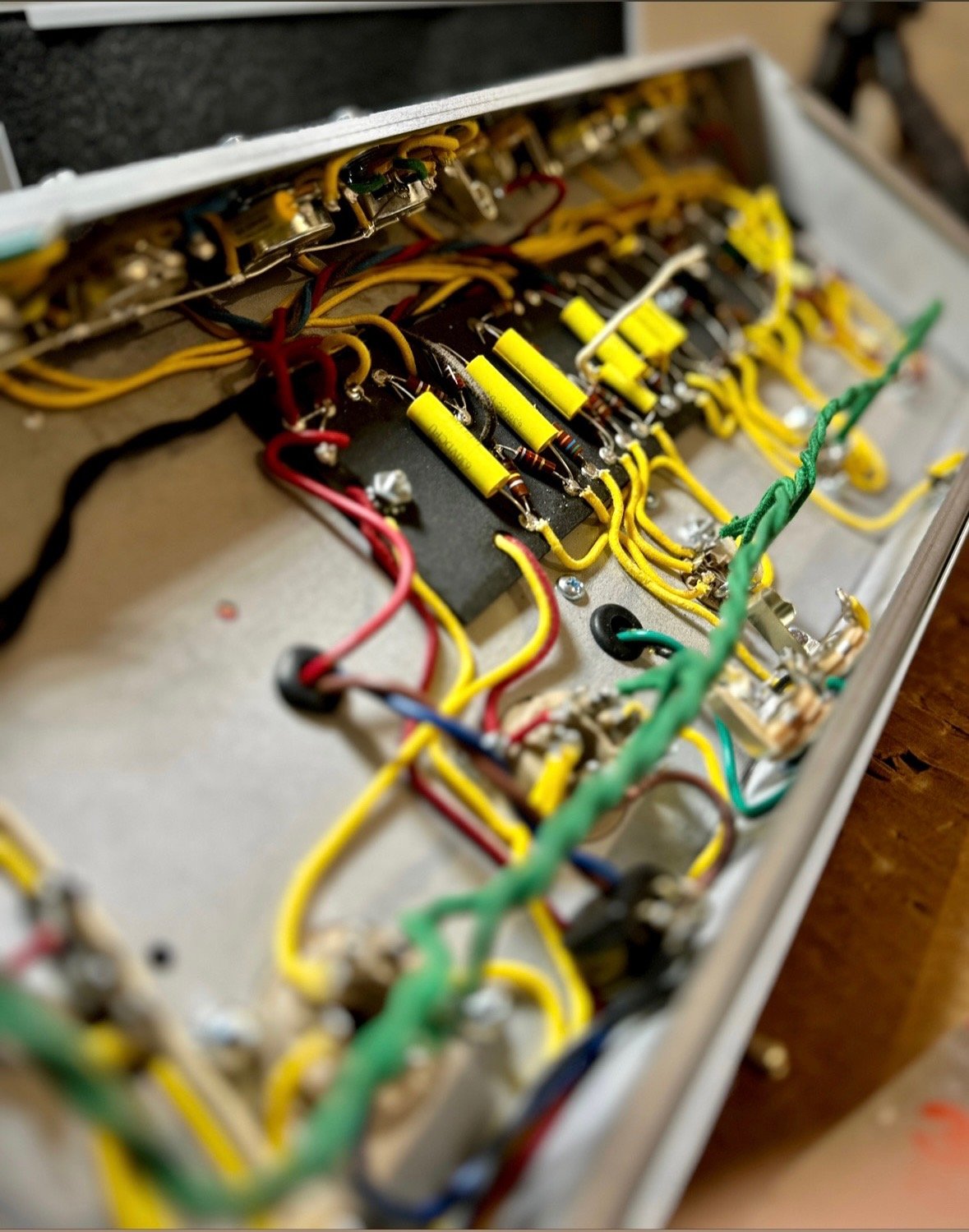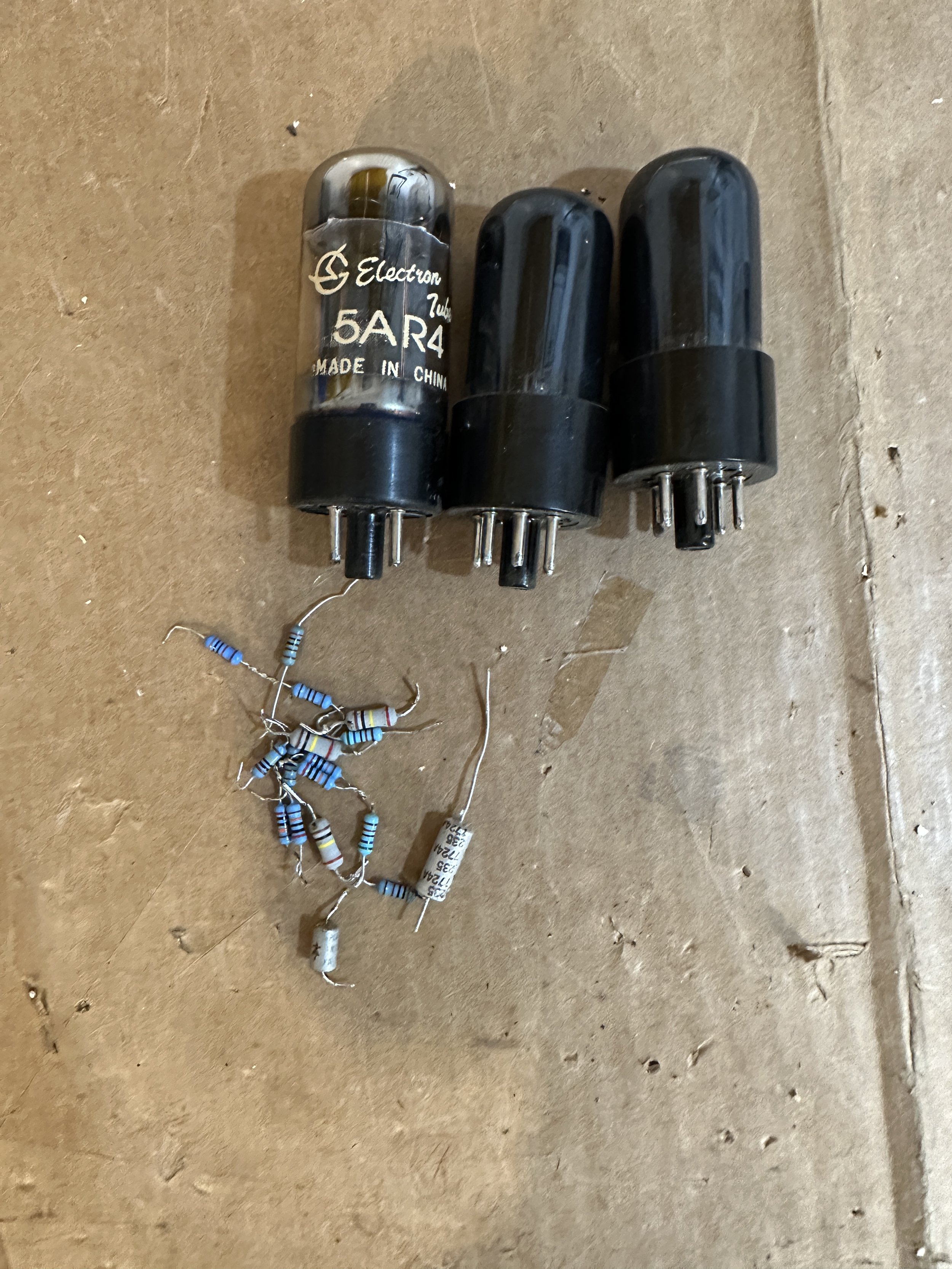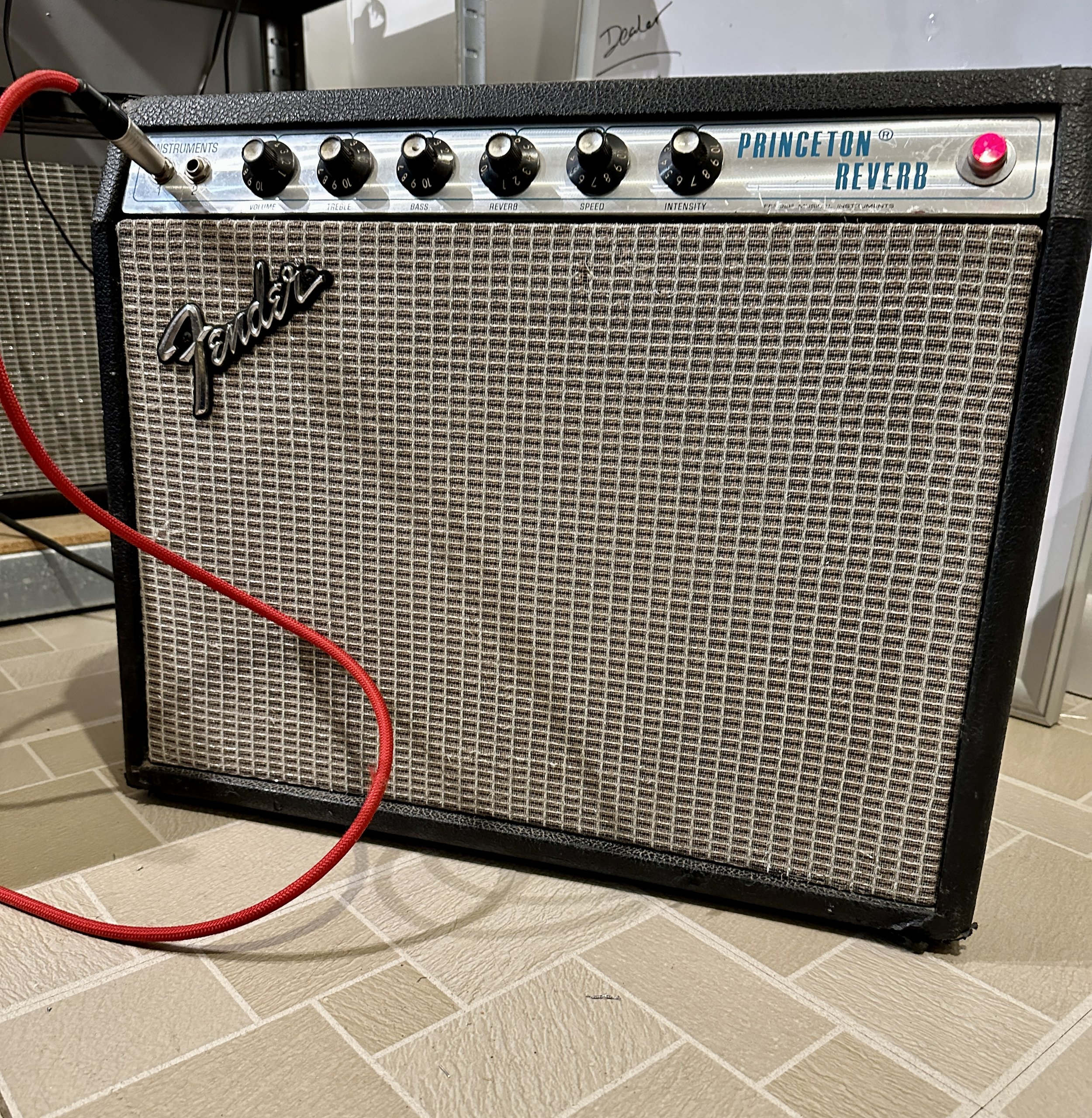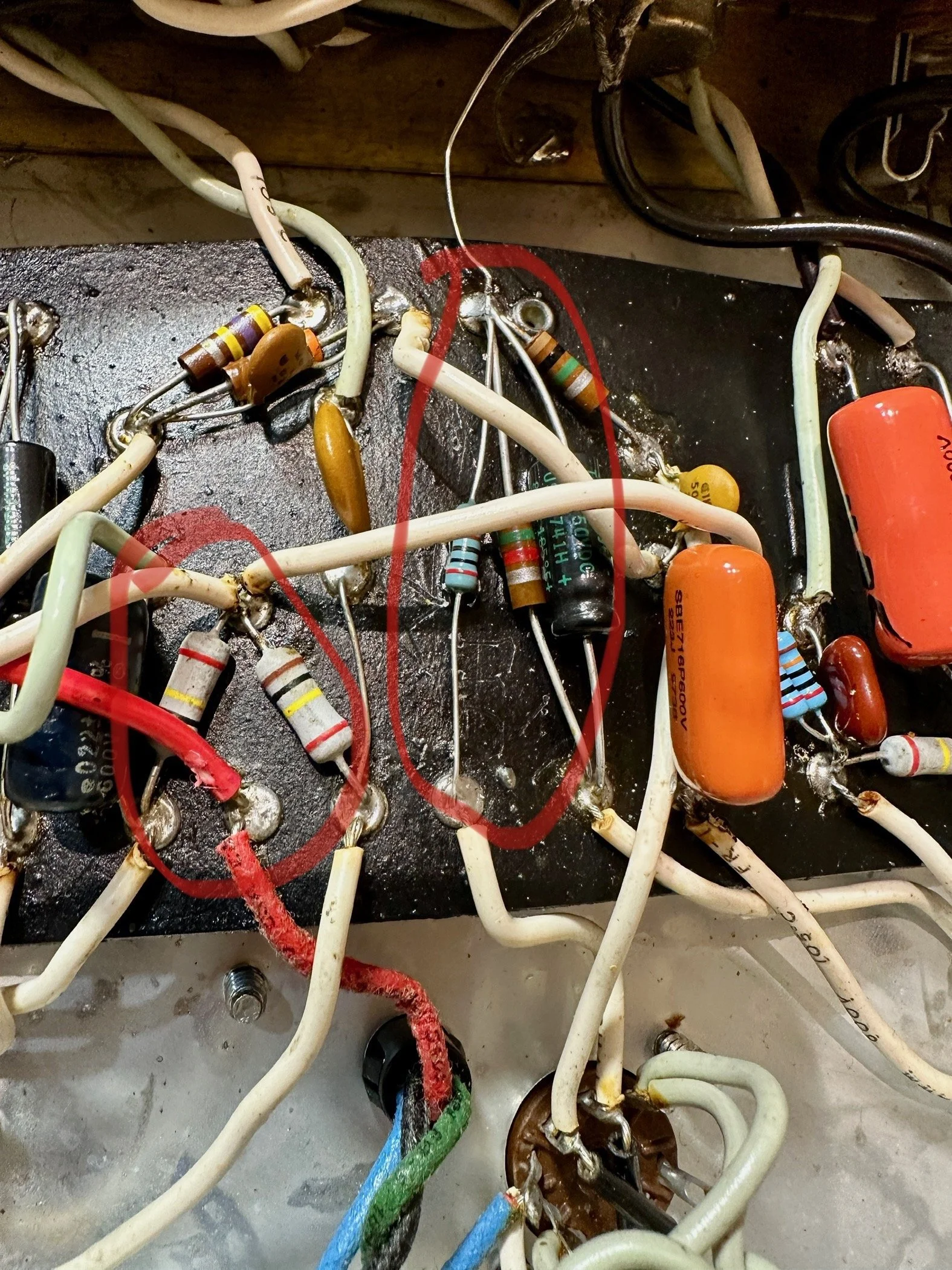The Disposable Amp
I get quite a few questions that usually take the form of something below:
Why would I buy a Headstrong over a re-issue or hand-wired version?
What is the difference between your amp and “Company X”?
Over the years I have made it a policy to not talk bad about any amp company, regardless of what quality they put out or level of service they may or may not provide. I also do not compare my work any other company other than the one I am trying to emulate, mid 50’s-Mid 60’s era Fender amplifiers, that is the bar!
But if pressed for an answer, one of the main differences, is that the amps I make are built to last a lifetime and if you decide to come back and buy another amp from me, it is because you loved the last one so much and want another or you need something else I build to fill a gap in your amp line and you appreciate the level of customer service I provide.
NOT because of this:
Maybe it is the 5th or 6th time to the repair shop one year and you have to make a decision on to pour more money into the same problems, or in most cases, just buy another. I call this the disposable amp model. That is what MANY companies do, more common on the import and mass production level, but also in some other boutique type models as well. I am sure you are familiar with Fender’s re-issue lines and the Hot Rod line, or the Pro Jr. line. These amps, when dialed in can sound really nice and there is a reason most guys request them for back line set ups when on the road without band gear…You can dial in a sound that “works” for the gig, you know what you’re getting, and they do provide the essence of that vintage tone.
The real problems fall to the owners and come in the form consistency, reliability, and long term life span. This is probably not a mistake or oversight, this is a business model. You will inevitably go right back to that amp on the same sales floor multiple times over the life of your guitar playing career…You know the amp, it sounds pretty good, you know how to get your sound out of it…And you dumped a bunch of money into the last one, so really that’s all you either want to or can afford spending on “another” amp. My Dad used to tell me, “pay me now or pay me later” is how life works. You can spend it all on something of quality, or you can buy something decent that probably won't last and you will be spending the same amount (or more) than just buying the one built right the first time. This is not exclusive to amps or gear…I have found this with everyday purchases as well. Just buy the right tool for the job at the requisite quality level to get the job done!
If you have read my other blogs, you know that I am not trying to sell you an amp, but rather, build you an amp you want or need. After we have established that I build something you can use. I am stating the above so that if you are in a position to buy quality over quantity, this is something to seriously consider. Some of us are in no position to spend the money on a new $2000-$4000 dollar hand-wired blah blah blah…And for you, the Re-issue or similar is a KILLER way to go! If you get a good one, they are actually damn nice! I worked with a backline company near Greensboro NC that had all the familiar characters set up on stage, but the speakers in the Re-issue’s had been changed to AlNico Weber’s! The guy playing it was a monster so that helped, but the guys working for the backline company said the owner buys the amps and sends them all to his tech to go through them and upgrade the speakers and tubes….It made a noticeable difference to my ears!
So there are ways to make marked improvements…If you don’t want to learn how to do basic (and a bit more in most cases) maintenance on these amps, make sure you develop a friendly relationship with a tech in your area…They are not always adversarial…In fact, you may want to consider them your lifeline to decent reliable tone…This may improve the dynamic between you and your tech. Regardless of what you buy at this level of quality, just remember that the idea is to get you to buy several of these over the life span of your hobby, or career! This is obviously a viable way to go based on the fact that most people go this route!
I am positive that $4000 Custom Shop guitar with the $1000 pedal board and high end cables will sound great through that $1500 Re-issue…
The other option is to buy something on the higher end market…First figure out what it is you need: wattage, speakers (size and number), what gigs you need it for and more importantly, don’t need it for. Also, do you need just one amp? Is that even possible for one amp to do all of that. My belief is the one amp that sounds like many is a bit of a “jack of all trades, master of none” situation. I will save that for another blog…It is important to know what you can afford, but also what you actually need for your gig. There is the element of what you deserve as well, that gig could be sitting in your music room alone, or with some friends, if you work hard and have the means, you probably deserve to treat yourself! Also this may be for relaxation and fun…It is not very fun taking your not that old “disposable amp” to the tech again!
It is all something to think about and if at some point you call me to ask about a build or just some advice in general, you can rest assured, I will do what I can to get you what you need or point you in the best direction if it is not something I build!
Hope this made some sense and thanks again for reading!
Wayne







